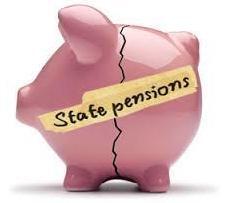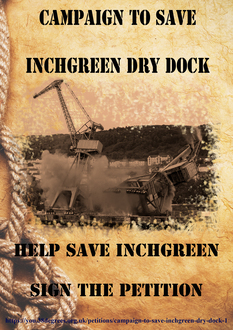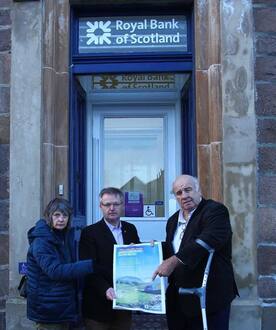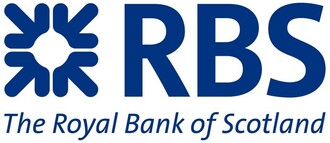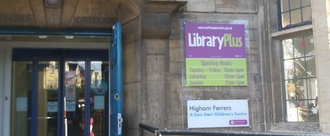-
Save A+M HireA+M Hire is one of the "Big 3" prop houses in Europe and the UK. It supplies period props and dressing for major feature films and TV dramas like ‘Victoria’, ‘The Crown’, ‘Game of Thrones’, the ‘Harry Potter’ films, ‘Pirates of the Caribbean’, ‘Murder of the Orient Express’ and many more. Due to the fact that HS2 require their premises as a construction site and due to circumstances beyond both A+M’s and HS2’s control A+M has to cease trading. As you may be aware there has been an upsurge in the film industry with companies like Netflix, Amazon and Sony making more and more productions in the UK, not only because of the tax breaks but also because of the facilities and skills we provide. Without A+M, who supply a huge amount of the props that are used in these films and dramas, the supply chain will be broken. Their stock is incalculably valuable, both in monetary terms and historically, irreplaceable and very often unique. It will endanger productions as inevitably the art department costs will soar as items, previously easily hired from A+M, will now have to be sourced from elsewhere, and almost certainly purchased, involving more upfront costs and considerably higher transport costs, both financially and ecologically, and of course, precious time. A+M’s collapse will also put all of their staff out of work, cause production costs to rise, and thus discourage companies to film in the UK and damage the film industry as a whole. This will obviously have a knock-on effect for all of the skilled crew that depend on the industry for their livelihood. We urge you to sign this petition, and hopefully prevent this shocking and debilitating loss to the industry.2,986 of 3,000 SignaturesCreated by Dominic Devine
-
Reduce the State Pension Retirement AgeIn July 2017, it was announced that the the state pension age in the UK will rise from 67 to 68 between 2037 and 2039, seven years earlier than previously planned. UK State Pension's are ranked the worst in the developed world. This is down to the earnings related element of a State Pension being removed, with the introduction of a new flat rate state pension. We are letting down the worker's of today, and the pensioners of now, if they cannot be provided with a decent retirement income at a fair realistic retirement age. The Organisation for Economic Co-operation and Development (OECD) report that over 18.5% of people over age 75 have incomes below the poverty line. This is down to the state pension. Whilst it is a fact that the UK population is now living longer, I do believe that the income tax, and national insurance contributions, paid by an individual up to age 65 should be sufficient for them to retire at that age and live a peaceful retirement without worrying about basic living costs. It is down to the Government to stop wasting money on: * Trident Nuclear Missile System * High Speed Rail Link * Refusal to Recycle better * Benefit Fraud and Errors * Bad Gold Sale * Computer Blunders * Perk Credit Cards * Areas where cuts could be made but alas the Government won't cut back This is by no means an exhaustive list but gives an indication of the money being wasted that could be used to top up the UK State Pension Pot. Please I ask you the Government to consider this petition, and respond in due course. Thank you for reading.165 of 200 SignaturesCreated by Brian Flindall
-
Campaign to Save Inchgreen Dry DockPeel Ports are vandalising the facilities at Inchgreen Dry Dock purchased in 2002 from Clydeport. They blew up the cranes in July 2017 claiming it was too costly to service and maintain. No investment has been made in the facility since 2002 and rumour was they wanted to infill the dock and sell the land for housing. They have now confirmed to Inverclyde Council that they are not selling the dock or infilling. The Dry Dock is the second largest in the UK and a major asset for Inverclyde and the west coast. Who are Peel Ports? The Peel Group is constructed like a Russian Doll, a company within a company within a company and so on that produces hundreds of companies. The holding companies are registered in Tax havens, the Isle of Man and the Cayman Islands, owned and controlled by John Whittaker tax exile and his sons through Billown Trust. They own 75% of the parent companies Tokenhouse Ltd, Tokenhouse Investments (Guernsey) Ltd and Peel Port Holdings, the other 25% is owned by a Saudi Arabian conglomerate the Olayan Group. The Peel Group own A&P Group (APG) based at Cammell Lairds in Birkenhead Merseyside and have 4 Dry Docks, they also have dry docks in Falmouth, Tyneside and Teesside, and now control Inchgreen according to their web page. APG have a joint venture with BAE Systems (BAES) and tendering for the Type 31e Frigates (each £250m +) have the same build time as the Type 26 Frigates being built by BAES in Govan and Scotstoun. The Frigates and a £200m BAES investment promised and supported by the Tory Government during the 2014 Independence Referendum did not materialise. Former Tory Defence Secretary of State, Lord Michael Fallon also reduced the build number of Type 26 from 13 to 8, another broken promise and BAES have only been contracted to build 3. Sir John Parker’s 2016 Report ‘The National Shipbuilding Strategy“ has also been used to break promises to Glasgow hence the joint venture, BAES providing Engineering, Design and Systems and APG doing the build in Birkenhead. However this report also suggested that a Regional Industrial Strategy could be developed to build the Type 31e and Clydeside has the capacity. Which begs the question- Did BAES not consider a joint venture with Ferguson’s Marine using Inchgreen and develop a Regional Strategy to build these Frigates? We think not, the joint venture would not like Ferguson’s Marine gaining expertise in MOD work, and APG would prefer their Merseyside investment to benefit. Peel Group have invested over £250m in Cammell Lairds and have grand plans to invest £50 Billion over 50 years in the Atlantic/Ocean Gate Project which covers both sides of River Mersey and the Manchester Ship Canal, the docks, container facilities, shipyards and riverside developments etc. Their future investment and the millions of public money they receive from the EU, Merseyside & Manchester Local Authorities, Enterprise & Regional Boards and Government is all for the Atlantic/Ocean Gate Project and none for Inchgreen. Merseyside and Manchester newspapers with community groups have asked whether the tax payer is getting value for the vast amounts of public money Peel receive and continue to receive. Their control of the Merseyside waters and coast has been a major concern for some community groups and one ExUrbe produced a critical 2013 report on Peel’s operation - “PEEL AND THE LIVERPOOL CITY REGION”. Peel has no intention of investing in Inchgreen Dry Dock and attracting work or they would not have destroyed the cranes. The Peel Group’s investment strategy is totally focused on Merseyside. However they could be in for another Public Purse payday when the Greenock Ocean Terminal Project under the City Deal gets final business case approval. Estimated costs are £14.793m, £7.193 from the Tax Payer, identified private sector investment £6.1m from Peel and £1.5m from the Dunard Art Fund, to date no contract has been signed or approved. We petition the Scottish Government and Inverclyde Council to bring Inchgreen Dry Dock into Public/Community Ownership for the future prosperity of Inverclyde and its citizens. We now have support from the local political parties Lib Dem’s, SNP, Greens, Labour and most Independent Councillors, local MP & MSPs also Unite and Unison Trade Unions. Our local newspaper the Greenock Telegraph have raised the profile of the Campaign with the Inverclyde public by their many articles on the issue. Copies of the Campaign petition can be obtained by contacting the below or sign online at:- https://you.38degrees.org.uk/petitions/campaign-to-save-inchgreen-dry-dock-1 email: [email protected] Tel 07719 646944 Its important for the future Industrial development of Inverclyde, attract good paid skilled jobs, secure a major asset for the West Coast of Scotland and preserve its shipbuilding heritage.1,691 of 2,000 SignaturesCreated by ROBERT BUIRDS

-
Save Knaresborough (and Ripon) MarketThe markets create important revenue for the already struggling town centres. Many people travel specifically to Knaresborough and Ripon to shop at the markets, and whilst they’re there, they also patronise the other local businesses, most of whom will say that Wednesday (Thursday in Ripon) is their busiest day. We are lucky in our towns to have a traditional communities where we can shop for everything such as meat, bread and vegetables locally. This is a rare experience in the modern world, and one to be treasured, especially as it promotes local community and ecological trading.3,828 of 4,000 SignaturesCreated by Shaeron Caton-Rose
-
To: Royal Bank of Scotland Stop RBS closing The Inveraray BranchRBS has given a stay of execution until December 2018. There are no guarantees they will then keep the branch open - despite businesses, individuals & charities facing a 74 mile round trip to bank if the Inveraray branch and the ATM are closed. The tourist industry is under threat if there is no bank in town and jobs will go. We can't let up the pressure now - keep the signatures rolling in and write to our MP, Brendan O'Hara, to continue his support.804 of 1,000 SignaturesCreated by Marian Pallister
-
SAVE Winter Wonderland ClactonThis brings tourists into the town therefore bringing money with it, it's a small local business where now loads of people had lost their jobs so close to Christmas!! This place brings/brought loads of joy to children and adults!!!4,372 of 5,000 SignaturesCreated by Jenny Johnson
-
Extend Consultation Period for Stretford Masterplan.Some of these concerns are (but not limited to) the haste with which the plan has been launched with seemingly little data, plans or research available to residents to substantiate claims of regeneration. Furthermore, there has been information emerging throughout the process that has caused alarm such as the design of the scheme, environmental impact, impact upon current residents and loss of public facilities and access to public space. Whilst we broadly support a vision to regenerate our town centre we cannot support a Masterplan which shows no consideration for incumbent residents and any impacts upon them. With further information it is entirely possible that we would support this plan - however as such information is not forthcoming we ask you to extend consultation and engage with the community meaningfully and openly. For further information - on twitter @m32dogs or [email protected] or facebook 'Development Opportunity Group for Stretford 'https://www.facebook.com/groups/347186892414426/317 of 400 SignaturesCreated by John Naughton
-
RBS Branches Closing in Clydesdale, Scottish Borders and Midlothian SouthNot only will this have a devastating impact on the bank workers who are set to lose their jobs, these closures will also have a negative effect on the local communities of Biggar, Carnwath, Douglas, Dunns, Eyemouth, Hawick, Jedburgh, Lesmahagow, Melrose, North Berwick, Penicuik, Selkirk and Strathaven. Those who are older, in poor health, who cannot afford to travel further afield to do their banking, or who run small businesses will be hit hardest by these branch closures.953 of 1,000 SignaturesCreated by Claudia Beamish MSP
-
Keep All Northamptonshire Libraries in Public OwnershipLibraries are often one of the last free to use public hubs in towns and villages where services have already been drastically cut. Reducing Northamptonshire's libraries and potentially leaving only 8 would be devastating for this semi rural county. These important buildings don't just house books they provide modern meeting places for many clubs and groups as well as community events, meeting rooms, internet access and a host of other services. To lose the libraries and with them some children's centres and elderly respite provision would be a real tragedy for our thriving communities leaving us without access to vital services.59 of 100 SignaturesCreated by Suzanna Austin
-
Stop planned changes to funding for women's refugesNew government funding plans threaten to dismantle our life-saving national network of refuges and put the lives of women and children trying to escape domestic abuse at risk. A Women’s Aid survey of refuge services showed that the proposed new model of funding could force over half of refuges responding to close or reduce their provision - resulting in 4000 more women and children turned away from the lifesaving services they desperately need. Already there are not enough refuge spaces to meet demand; data from Women’s Aid shows that 60% of total referrals to refuges were declined in 2016/17. When on average two women a week are killed by a partner or ex partner across England and Wales the stakes could not be higher. Under the new plans, rent money which would have in the past gone straight to domestic violence refuges would instead go to local authorities - effectively forcing refuges to compete for funding with other local services. Refuge managers have warned “if the plans get implemented it will be the end of domestic violence refuges." Visit the Women’s Aid website to find out more about this campaign: https://www.womensaid.org.uk/what-we-do/campaigning-and-influencing/campaign-with-us/sos/177,437 of 200,000 SignaturesCreated by Women's Aid
-
Change the way women’s refuges are fundedThe changes, giving LA’s the money for refuges, will lead to refuges being closed because local authorities that are already stretched will be unlikely to want to pay for a woman and her children who have come from out of town( for safety reasons). The LA will want to use the money elsewhere, meaning more women will be killed and injured at the hands of abusive partners. It will also lead to more emotional trauma for children living in abusive households48 of 100 SignaturesCreated by Siobhan Grimshaw
-
Stunning new theatre and Civic Complex for Tunbridge Wells? Yes pleaseThe proposal to build a new Civic Centre would result in a greatly enhanced theatre and badly needed modern office space in the centre of our town. This is a real opportunity to develop Tunbridge Wells as a regional cultural hub with all the associated social and economic benefits. The proposed theatre would sit alongside Trinity, the new cinema which is to be part of the redevelopment of the old ABC site and the proposed new ‘Cultural and Learning Hub’ (the refurbished Museum, Art Gallery, Library, Adult Education and Visitor Centre). The proposed location, on the fringe of Calverley Grounds, will both maximise enjoyment of that public space and benefit from the proximity of the main railway station, as well as serving to connect the attractions at the top of town with those in the Pantiles. Existing facilities can be maintained whilst the new buildings are going up. Though the plans do not come cheap, I am persuaded by the arguments that they are affordable and represent good value for money, an investment for the future that will help ensure Tunbridge Wells continues to thrive. Refurbishing the existing buildings would be cheaper but still involve spending millions and all we would end up with is a slightly shinier version of the inadequate status quo. These are challenging times, but challenging times call for robust responses and I support the initiative behind these plans and would like to see them progressed. If you feel the same please sign this petition: the plans will only go forward if they have majority support. If you want to know more before you decide you can visit the website http://www.twciviccentre.co.uk or follow on Twitter at @TWCivicCentre.264 of 300 SignaturesCreated by jacqueline heath
Hello! We use cookies to improve your experience by providing insights into how the site is being used. Find out more.

